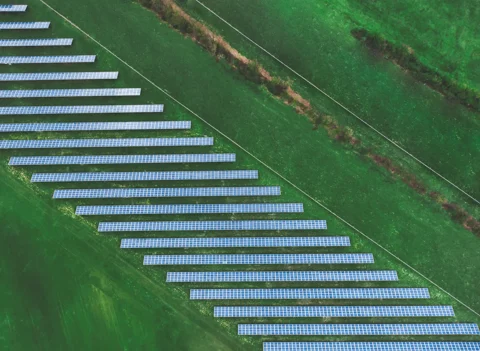Current issues related to economics, (responsible) investment, pensions and income: every week an APG expert gives a clear answer to the question of the week. This time: equity investor Martijn Olthof talks about the consequences of the high price of natural gas for the EU’s green ambitions.
The increase in the price of natural gas, which started last fall, due to increasing demand from industry, has become much more critical because of the war in Ukraine. The war and the high price of natural gas are reasons for the EU to quickly become less dependent on natural gas from Russia. Brussels therefore announced on Tuesday that the EU is going to have to be able to manage without natural gas from Russia before 2030. This REPowerEU plan is a tightening of the so-called Green Deal and the Fit for 55 plan, which aims to reduce carbon emissions by 55 percent by 2030. An even more ambitious climate plan, therefore, and a turning point in European energy policy.
“The Fit for 55 plan was already very ambitious, especially in these times of high energy prices, high inflation and a shortage of labor and materials,” Olthof said. So, is an even tighter target realistic? “It is realistic in the sense that the need is there, and need supersedes law. Such a tightening is also necessary because Moscow can decide to turn off the natural gas tap at any moment. The situation in Ukraine and the high natural gas prices are all the more reason to implement the Green Deal and the Fit for 55 plan more quickly and to focus even more on renewable energy.”
Investments
One of the concrete measures in the REPowerEU plan is to shorten procedures for the construction of wind farms and solar panels. A welcome measure, according to OIthof. “But this will only succeed if the bureaucracy around permits is reduced, because companies that want to invest in this often run into that. If, for example, a high-voltage cable has to be laid, especially on land, it often takes years before all the required procedures have been completed. In and of itself this is a good thing, because people do need to have a say in the matter and not everyone wants a high-voltage pylon in their backyard. But one way or the other, this type of infrastructure is necessary, especially if we want to move away from fossil fuels, and particularly from natural gas from Russia, even sooner. It is therefore important that, where possible, without losing sight of the interests of local residents, procedures of this kind are actually relaxed so that investments in the energy transition can get off the ground more easily.”



